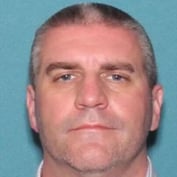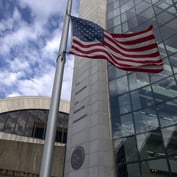NEW YORK (HedgeWorld.com)–The 63 panelists announced by the Securities and Exchange Commission for the hedge fund round table next week include lawyers, regulators, pension and endowment investment officers, private investigators, industry association officials, prime brokers and other service providers.
Some of the largest hedge fund firms are represented. Armando Belly of Soros Fund Management LLC, New York; George Hall of Clinton Group, New York; Michael Neus of Andor Capital Management LLC, New York; and Peter Brown of Renaissance Technologies Corp., New York, are among the panelists. Ditto for James Chanos of Kynikos Associates Ltd., New York, the renowned short seller who discerned Enron’s problems long before these became public knowledge.
Well-known funds of funds managers also are going to be there, such as Afsaneh Beschloss of Carlyle Asset Management, Washington; Larry Simon of Ivy Asset Management Corp., Garden City, N.Y.; Sandra Manzke and Robert Schulman of Tremont Advisers Inc.*, Rye, N.Y; James Hedges of LJH Global Investments, Naples, Fla.; and Michael Dieschbourg of Silver Creek LLC, Seattle.
What is missing is the bulk of the industry–mid-size and smaller hedge fund managers that make up most of the 6,000 or so firms in the industry. They are represented mainly by Jack Gaine of the Washington-based Managed Funds Association, who submitted written comments to the SEC in preparation for the round table. Asked about the small number of hedge fund managers invited to talk, he suggested that there are more than immediately meets the eye.
Mr. Gaine sees next week’s event as a continuation of the fact-finding process that regulators started in May of last year Previous HedgeWorld Story. No conclusions have been reached yet, he said. SEC investment management chief Paul Roye, who of course is a panelist, has also indicated that there are no preconceived notions Previous HedgeWorld Story.
One industry veteran commented, “Thirteen out of 63 does not sound like good representation of hedge funds. It sounds more like a service providers’ convention.” This observer asked: “Does the SEC think that this is good representation?”
Agenda








 May 12, 2003 at 08:00 PM
May 12, 2003 at 08:00 PM










